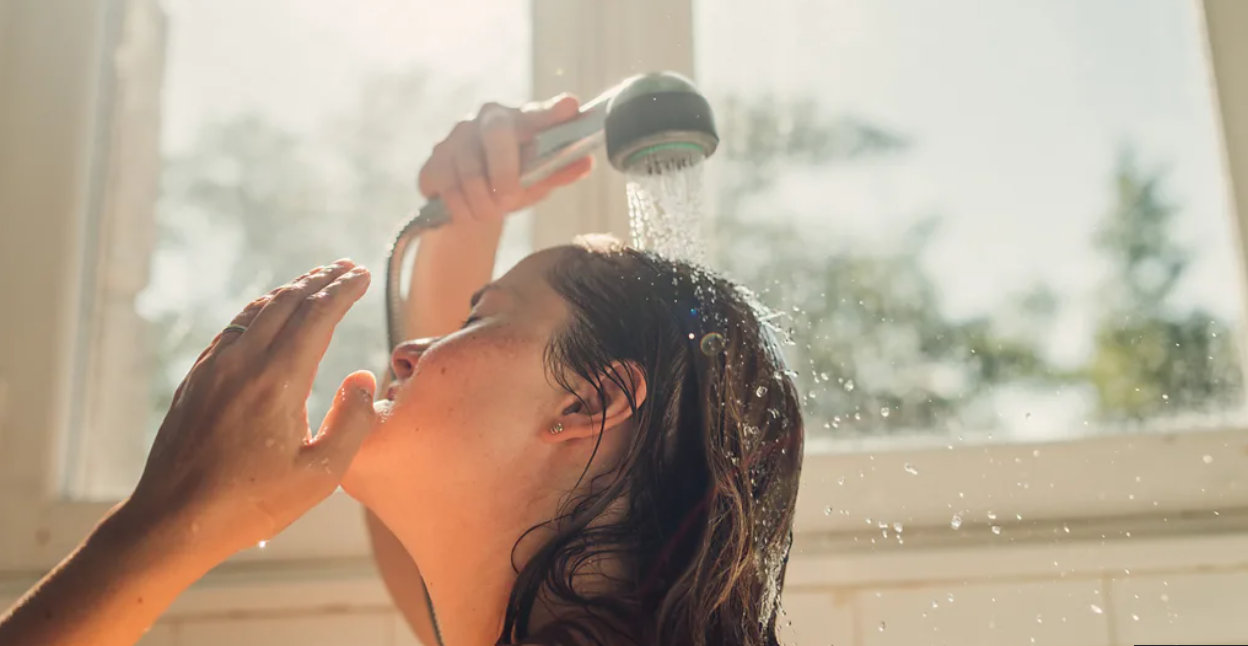
What's ideal - short or long shower time?
According to Healthline, both long and short showers have side effects.
Whichever camp you belong to, you may wonder what impact your choice has on your health.
In Summary

Audio By Vocalize

Some people prefer to shower in the morning, others in the evening. Who is doing it the right way?
In this increasingly polarised world we live in, there is one question that perhaps divides us more than any other – do you shower first thing in the morning, or last thing at night? Or perhaps you are one of the 34% of the American population who do not shower daily.
Whichever camp you belong to, you may wonder what impact your choice has on your health.
For many of us, after we wake up bleary-eyed in the morning one of the first things we do is jump into the shower.
Morning shower advocates often argue that standing for 10 minutes under a torrent of hot water helps them to wake up and feel fresh and ready to start the day.
Yet nighttime bathers argue that showering before bed helps them wash the day's grime away before they slip under the covers and succumb to blissful sleep.
So what does the science say on which is actually more beneficial for us?
Showering helps to remove the dirt, sweat and oil from our skin. This can accumulate throughout the day, along with pollutants, dust and pollen from the environment. If you don't shower before bed, this detritus is deposited onto your sheets and pillowcase.
This isn't all. Your skin is teeming with microbial life. Zoom in on any square centimetre of skin and you'll find between 10,000 to one million bacteria living there. They feed off the oil secreted from your sweat glands. While sweat itself doesn't smell, the sulphurous compounds produced by bacteria like staphylococcus certainly do.
So showering before bed may seem like the more hygienic option. However, as ever, the truth is more complicated than that.
"If you shower at night you go to bed nice and clean, but you'll still sweat overnight," says Primrose Freestone, a microbiologist at the University of Leicester.
According to Freestone, even in cold weather a person will still sweat up to half a pint of sweat into the bed, and deposit 50,000 or more skin cells – an all-you-can-eat buffet for dust mites.
"You're still going to create a sort of sweaty, micro-environment that the bacteria on your skin are going to eat and produce a minor level BO. So when you wake up in the morning after showering at night, you're still slightly on the smelly side," says Freestone.
The benefits of a nighttime shower also only apply if you regularly wash your bed linen. Bacteria can survive on duvets, sheets and pillows for weeks. Dust mites also can accumulate over time, as can fungi, especially on moist areas such as your pillows.
While people with a fully functioning immune system can cope with this microbial assault, up to 76% of people with severe asthma are allergic to at least one fungal species. Exposure to A. fumigatus can cause chronic lung disease in people suffering from TB or smoking-related lung disease.
"It's probably more important to be cleaning your bedsheets than it is to be showering in the evening," says Holly Wilkinson, senior lecturer in wound healing and the microbiome at the University of Hull in the UK. "Because if you're going to bed showered but leaving those bed sheets for a month, then that is going to accumulate bacteria, dirt and dust mites."
This is a problem, as long-term exposure to dust mite excretions increases your risk of allergies. If you are somebody who is already sensitive to allergens like pollen, then not washing your bed linen will also likely make your symptoms worse.
It's also possible that regularly going to bed in dirty sheets could increase your risk of skin infections – although the evidence for this is inconclusive.
Some proponents of nighttime showers argue that it helps them sleep better, and there is evidence to support this.
For example a meta-analysis which compared the results of 13 studies found that having a 10-minute warm shower or bath an hour or two before bedtime shortened the time it took to fall sleep significantly.
It's possible raising the body temperature before cooling it down again acts as a circadian signal telling our bodies to prepare for sleep, although again more research is needed to confirm this.

According to Healthline, both long and short showers have side effects.